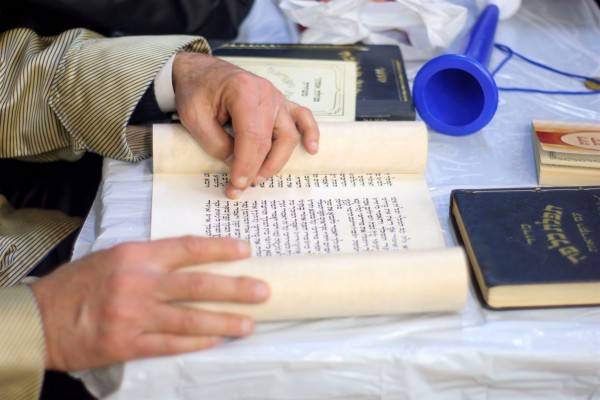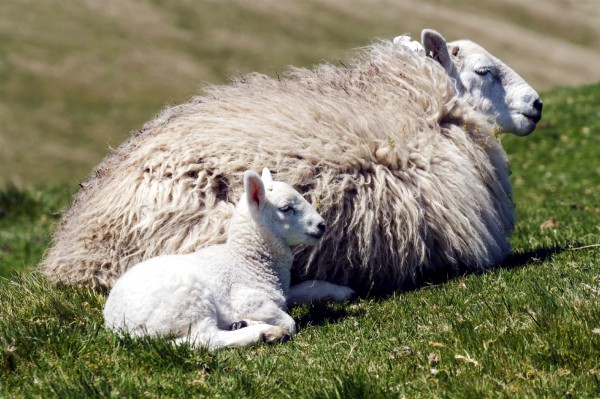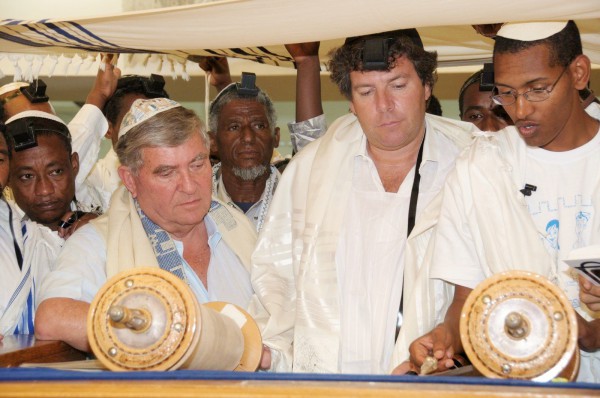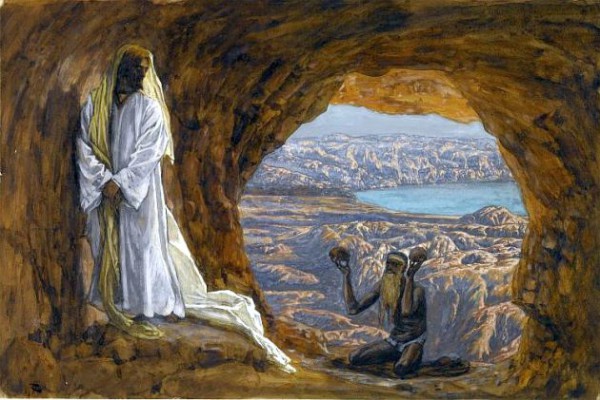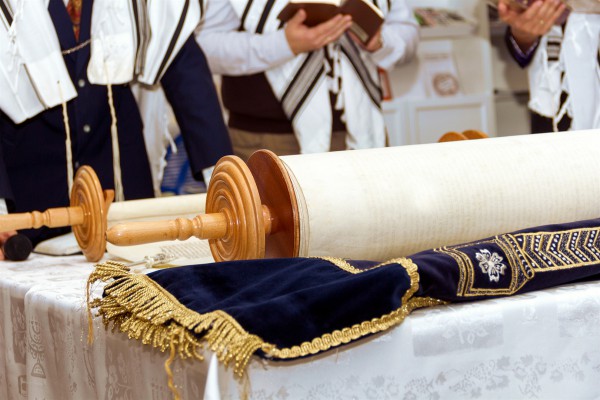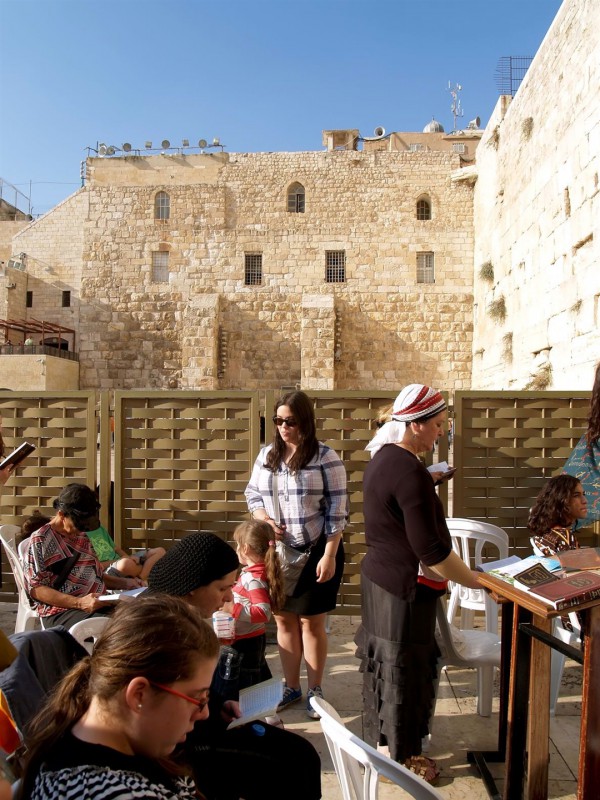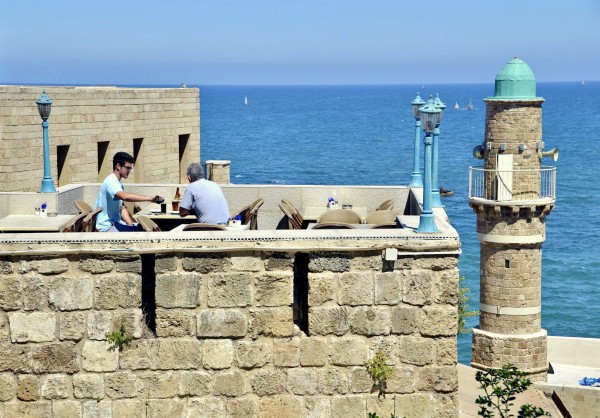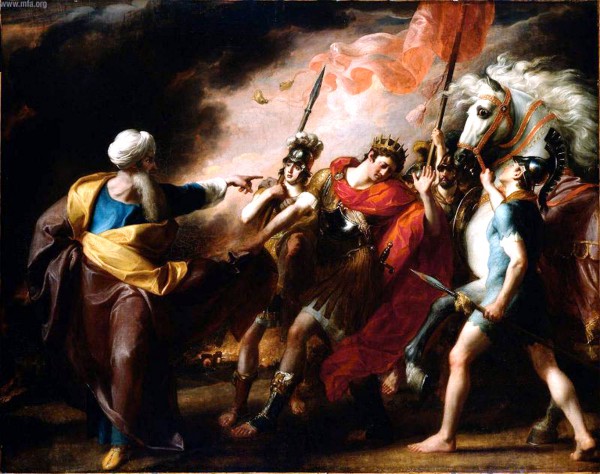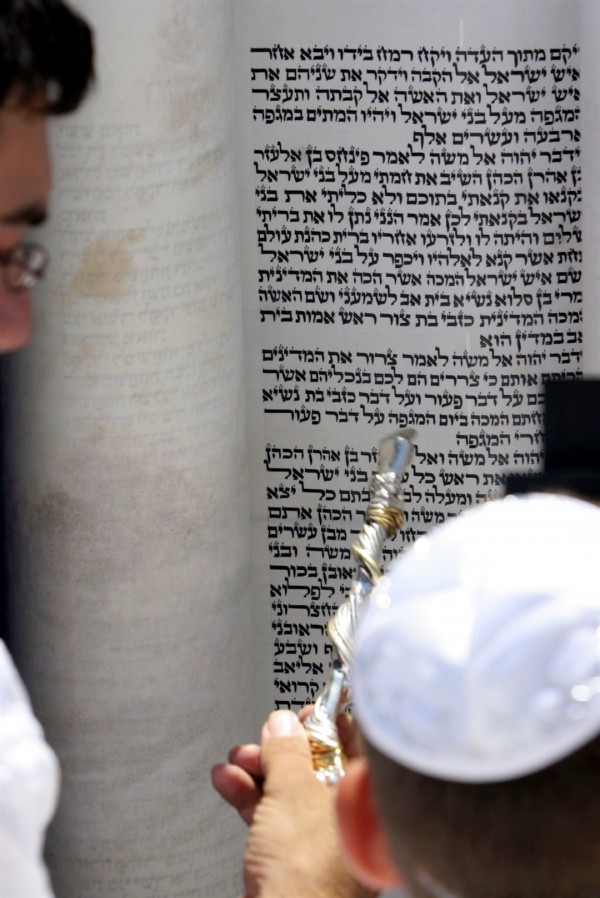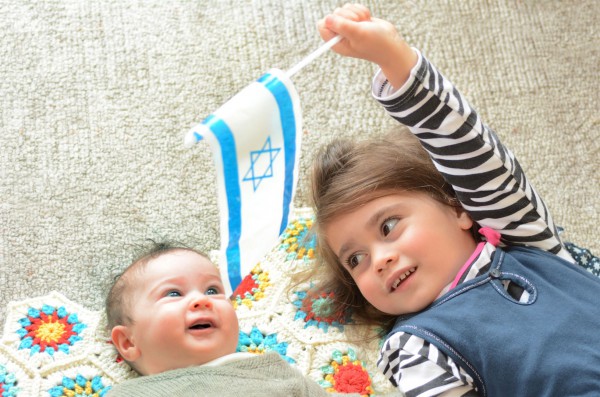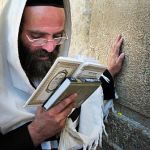VAYIKRA (And He Called)
Leviticus 1:1–5:26; Isaiah 43:21–44:23; Hebrews 9:1–28;
Shabbat Zachor Haftarah: I Samuel 15:2–34
Maftir Deuteronomy 25:17–19
“The Lord called to Moses and spoke to him from the tent of meeting.” (Leviticus 1:1)
Last week, Parasha Pekudei was the final Torah portion in the book of Exodus.
This Shabbat, we begin studying the Book of Leviticus. In Hebrew, Leviticus is called Vayikra after its opening word וַיִּקְרָא, which means and He called.
But this Shabbat is also special because it is Shabbat Zachor (Sabbath of Remembrance), the Shabbat preceding Purim and the second of four special Shabbatot that prepare us for Passover. A special reading is added from Deuteronomy 25:17–19, which recounts the attack of Amalek.
The Relevance of Offerings
“Speak to the sons of Israel and say to them, ‘When any man of you brings an offering to the LORD, you shall bring your offering of animals from the herd or the flock. If his offering is a burnt offering from the herd, he shall offer it, a male without defect; he shall offer it at the doorway of the tent of meeting, that he may be accepted before the LORD.” (Leviticus 1:2–3)
The Torah portion, Vayikra, presents the laws of korbanot (קָרְבָּנוֹת offerings), including the korban olah (קָרְבַּן עוֹלָה) or burnt offerings.
The Hebrew noun olah means goes up because the priest would burn the offerings on the wood of the altar, the aroma would go up to be accepted by the Lord.
The Hebrew word korbanot comes from the root word k-r-v (קרב), which means to be close (karov). The sacrifices, once accepted by God, restore closeness and intimacy between Him and His people.
It is our iniquities and sins that separate us from God and prevent us from establishing or maintaining a close relationship with Him.
“But your iniquities have separated you from your God; your sins have hidden His face from you, so that He will not hear.” (Isaiah 59:2)
Although some New Covenant Believers consider the laws in Leviticus irrelevant and obsolete, they remain relevant and are indeed extremely important.
For instance, without them we cannot grasp the concept of blood sacrifice to atone for sin. That core concept in God’s plan for redemption helps us rightly understand the sacrificial death of Yeshua the Messiah.
Attempting to understand Yeshua’s death on the Roman execution stake without comprehending the blood sacrifices is like trying to build a house without a foundation. The home may last for a time but will not withstand the fierce storms without that solid base.
Likewise, we must have a solid foundation in the Word of God to rightly understand the Word of God, as well as successfully navigate through the storms of life.
For some people, a guilty conscience over past sins causes them to be alienated from God, despite having received forgiveness. The blood sacrifice of Yeshua, however, was shed to restore us to right relationship with God and to completely cleanse us of any trace of a guilty conscience:
“How much more will the blood of Messiah who through the eternal Spirit offered Himself without blemish to God, cleanse your conscience from dead works to serve the living God?” (Hebrews 9:14)
Despite this, some followers of Yeshua still struggle with guilt and condemnation, even though the Word of God promises that those who are in the Messiah are free:
“There is therefore no condemnation to those in Yeshua the Messiah who do not walk in the flesh.” (Romans 8:1)
This doesn’t mean that we do not have to make restitution to those we wronged. Yeshua clearly taught that we are to seek out those we have wronged and get right with them before coming to the altar with any offering. (Matthew 5:23–26; Leviticus 5:16).
Once restitution has been made, then we can apply the blood of Yeshua to the doorposts of our hearts (just as the Israelites applied the blood of the lamb to the doorposts of their homes in Egypt) to be set free from the wages of sin, which is death.
“Let us draw near with a true heart in full assurance of faith, having our hearts sprinkled from an evil conscience and our bodies washed with pure water.” (Hebrews 10:22)
The pure waters refer to the mikvah, the ritual water immersion, which is symbolic of our new spiritual birth.
Only when our hearts have been cleaned (sprinkled with the blood of Yeshua) and our bodies immersed in the mikvah can we have this assurance of our faith that allows us to draw near to God.
A guilty conscience over our past will separate us from intimacy with God, as well as other Believers in the Body of Messiah.
The above Scripture (Hebrews 10:22) is followed by an exhortation to make sure we continue to meet together with other Believers as the Body of Messiah (Hebrews 10:24–25). We cannot expect to walk free of sin if we isolate ourselves from those who follow Yeshua. We need to stay accountable to one another and to exhort one another to live a life of holiness.
Since each of us has been given the ministry of reconciliation, we should be agents of healing and restoration.
The Blood of Sprinkling
“He shall slay the young bull before the LORD; and Aaron’s sons the priests shall offer up the blood and sprinkle the blood around on the altar that is at the doorway of the tent of meeting.” (Leviticus 1:5)
The Cohen (High Priest) not only sprinkled the blood around the altar, he dipped his finger in it and sprinkled it seven times before the Lord, in front of the veil. (Leviticus 4:17)
Some suggest that, likewise, the blood of Yeshua, who was the High Priest (Cohen HaGadol) of the New Covenant, was also sprinkled before the Lord seven times:
- Yeshua perspired drops of blood in the Garden of Gethsemane when He prayed to the Father: “And being in anguish, He prayed more earnestly, and His sweat was like drops of blood falling to the ground.” (Luke 22:44)
- He was struck in the face until it was “marred beyond recognition.” (Isaiah 52:14)
- His back was scourged with a whip. (Isaiah 50:6; Matthew 27:26)
- The soldiers put a crown of thorns on His head. (John 19:2)
- They plucked out His beard. (Isaiah 50:6)
- They pierced His hands and feet. (Psalm 22:16; Luke 24:39; John 20:27)
- They pierced His side with a spear and blood and water came out. (Psalm 22:14; John 19:34)
Satanic Counterfeit
Animal rights activists are likely appalled to read of all the sacrifices that the Torah requires. Some people, even Christians, are uncomfortable with the whole idea of blood sacrifices. One of the reasons is our natural human aversion to blood. Another reason is because of the association with evil satanic rituals.
Satanism observes its own system of blood sacrifices to the powers of darkness.
As well, Satan often attempts to twist and pervert the Word of God, using it for his own evil purposes. Luke 4 gives us an example of how he did this with Yeshua when He was tested in the wilderness.
Satan misleads by substituting wicked counterfeits for the holy things of God, such as blood sacrifices.
People of various pagan religions have practiced the ritual killing of animals to appease their false gods. Many cultures used animal sacrifice in purification ceremonies. Some of these include (in addition to the Hebrews): Greeks, Romans, Ancient Egyptians, Aztecs, and Yoruba.
Is animal sacrifice still practiced today? Not currently in Judaism, as the korbanot cannot be offered without the Temple.
However, outside of Judaism, it is practiced. Followers of Santeria (a religion of Caribbean origin) to this day do offer up some sacrificial animals to cure the sick or give thanks to their god (Orisa) as part of their ritual activities.
There are also some Christians in certain Greek villages who, in a practice called kourbània, sacrifice animals to Orthodox saints.
Human Sacrifice
Another Satanic counterfeit to God’s sacrificial system is found in some cultures and religions in which human beings were sacrificed as a way of giving their very best to their god.
In times of natural disasters, such as earthquakes, floods, or volcanic eruptions, which have historically been understood as evidence of their deity’s anger or displeasure, other cultures have offered up human sacrifice in the hopes of appeasing the wrath of their gods.
Even in the West, rumors abound on the Internet and the Hollywood scene that a human blood sacrifice will serve to move one into the extremely wealthy club ($20 million+).
Whether or not it is actually practiced as it once was, Satan worshipers and those who worship evil have been performing human blood sacrifice since ancient times, so it is likely that this continues to this very day among his followers within secret communities just outside of mainstream culture.
Judaism, on the other hand, abhors the concept of human sacrifice, because it is abhorrent to Elohim, as it is written: “Never give your children as sacrifices to the god Molech. If you do, you are dishonoring the name of your God. I am YHVH.” (Leviticus 18:21)
It is for this reason that most Jewish people find it so difficult to believe in Yeshua— human sacrifice has always been associated with paganism and is strictly forbidden.
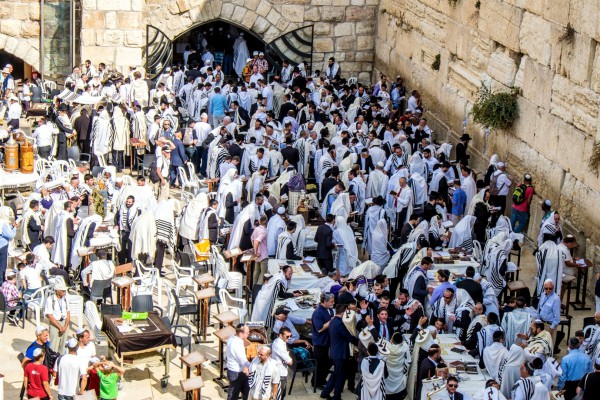
Men gather to worship God at the Western (Wailing) Wall. On close inspection, at least 20 Torah scrolls are either being carried or are placed on tables in the above photo.
The One True God completely forbade His people from pagan worship customs and especially the practice of human sacrifice:
“You must not worship the LORD your God in their way, because in worshiping their gods, they do all kinds of detestable things the LORD hates. They even burn their sons and daughters in the fire as sacrifices to their gods.” (Deut. 12:31)
Knowing that God detests human sacrifice, especially of a son or daughter at the hand of a parent, the Jewish people naturally assume that our God would never allow someone to die a substitutionary death the way animals do.
This is a significant stumbling block to receiving salvation through Yeshua the Messiah for the Jewish People. However, the ancient prophet Isaiah revealed that long ago Elohim planned to lay all of our sins and iniquities upon the Messiah:
“But He was pierced through for our transgressions, He was crushed for our iniquities; The chastening for our well-being fell upon Him, and by His scourging we are healed. All of us like sheep have gone astray, each of us has turned to his own way; But the LORD has caused the iniquity of us all to fall on Him.” (Isaiah 53:5–6)
God did not intend for His korbanot to be performed by a people who were determined to live lawless lives. They were never a substitution for living in fellowship with Him and being right-hearted.
Likewise, Yeshua’s sacrifice was meant to restore fellowship with our Father upon a person seeking to draw near to Him, sincerely repenting of their sins, and accepting the sacrifice as a free gift on their behalf.
The blood of the Lamb of God (Yeshua) takes away the sins of those who believe in who He is, what He did, turn from their sin, and follow Him.
God does not delight in the sacrifice but in the right heart of the person who offers it.
All of the Hebrew prophets warned the people that offering sacrifices without accompanying inner morality and goodness would be in vain.
Ultimately, what God requires of each one of us is to practice justice, mercy and humility toward God and man.
“It has been told to you, O man, what is good, and what the LORD does require of you: only to do justly, and to love mercy, and to walk humbly with thy God.” (Micah 6:8)
And Yeshua, who has set us free from the evil master of sin through His death and resurrection, has given us the power to be just, love mercy, and walk humbly with our God.
Parasha Zachor
Because this is the Shabbat before the festival of Purim (Lots), a special reading from Deuteronomy 25:17–19 is studied in addition to the regular Scripture portion. It is also called the Zachor (Remembrance) reading, because it details God’s command that we remember the wickedness of Amalek:
“Remember what Amalek did to you on the road, on your way out of Egypt.
“That he encountered you on the way and cut off those lagging to your rear, when you were tired and exhausted; he did not fear God.
“And it shall come to pass, when the Lord your God has given you rest from all your enemies round about, in the land which the Lord your God is giving you for an inheritance to possess it, that you shall obliterate the memory of Amalek from under the heavens. Do not forget.”
These Scriptures to remember Amalek are read on the Sabbath before Purim — which celebrates Esther’s victory in helping to save the Jewish People from annihilation in Persia.
Why do we read them now? Because the one who plotted the annihilation of the Jewish People in the Book of Esther, the anti-Semite Haman, is believed to be a descendant of Amalek. We must remember what he did, as well.
This Shabbat is, therefore, also called Shabbat Zachor (Shabbat of Remembrance), and is the second of four special readings surrounding this Hebrew month of Adar. The other three are: Shekalim, Parah, and HaChodesh.
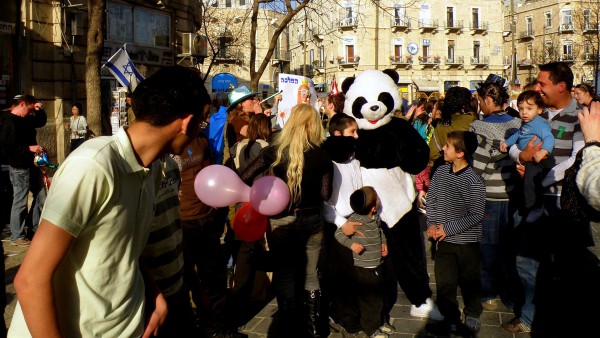
Purim is a joyous festival of costumes, parades and parties. In the above photo, Israelis celebrate Purim in the streets in Jerusalem. (Photo by Ron Almog)
Haftarah Zachor: The Aftermath of Disobedience
“Now go and strike Amalek and utterly destroy all that he has, and do not spare him; but put to death both man and woman, child and infant, ox and sheep, camel and donkey.” (1 Samuel 15:3)
In Haftarah Zachor (1 Samuel 15:1–34), God remembers the Amalekites and tells Saul through the Prophet Samuel (Shmuel HaNavi) that He is going to punish them for fighting Israel after they left Egypt. Saul, therefore, is to utterly obliterate the memory of the Amalekites.
Although Saul does destroy the Amalekites and everything considered useless, he spares King Agag and keeps the best of the sheep and oxen and everything considered valuable.
Saul defends his disobedience by saying that he kept the best of Amalek for a sacrifice to the Lord; nevertheless, God sees through his so-called “good intentions” and Samuel rebukes Saul’s defiance with a word from the Lord:
“Does the Lord delight in burnt offerings and sacrifices as much as in obeying the Lord? To obey is better than sacrifice, and to heed is better than the fat of rams.
“For rebellion is like the sin of divination, and arrogance like the evil of idolatry. Because you have rejected the word of the Lord, He has rejected you as king.” (1 Samuel 15:22–23)
Saul’s misplaced mercy in keeping King Agag alive almost wiped out the Jewish People.
According to commentaries, Agag impregnated a maidservant before his death and, therefore, the Amalekite lineage survived. Haman, who is called the “Agagi,” was his offspring.
Through Haman, Amalek once again tried to destroy the Jewish People.
Though murder is abhorrent to the Jewish People and all followers of Yeshua, God is utterly committed to the survival of His people, and He will do whatever is necessary to ensure their future.
Remembering Agag and Haman reminds us that our own disobedience can negatively affect those whom God loves, long after we are gone. Let us, therefore, set our hearts on being obedient, rather than simply doing what seems best at the time.
Amalek Lives On
“Finally, be strong in the Lord and in the strength of His might. Put on the full armor of God, so that you will be able to stand firm against the schemes of the devil. For our struggle is not against flesh and blood, but against the rulers, against the powers, against the world forces of this darkness, against the spiritual forces of wickedness in the heavenly places.” (Ephesians 6:10–12)
Amalek represents all evil forces throughout history trying to stop God’s plan. It is the opposite of everything beautiful and glorifying to God.
It still exists today as an anti-Messiah spirit that does not fear God and despises God’s people with a venomous hatred.
The spirit of Amalek is against Israel.
We see this same spirit active within the fundamentalist Jihadi Islamic factions whose sole aim is to kill and destroy Christians and Jews once and for all time — that is the foundational ideology of Islamic scriptures.
What is the only way to defeat the spirit of Amalek? Zachor — remember.
We must never forget what the spirit of Amalek has done to the Jewish People over the past 3,000 years — as expressed in the slogan for Holocaust Remembrance Day — “Never Forget.”
Even as the last of the Holocaust survivors become elderly and pass away, the remembrance of the horrors of the Holocaust that the spirit of Amalek committed against God’s people through the Nazis must never be forgotten.
We must always remember and never forget that we have an enemy who seeks to steal, kill, and destroy; therefore, we must be continually on the alert and wear our spiritual armor daily.
God’s will is that we not be defeated, but that we live victorious, abundant, and joyous lives through Yeshua, empowered by the Ruach HaKodesh.
“The thief comes only to steal and kill and destroy; I came that they may have life, and have it abundantly.” (John 10:10)
In these troubled last days, as the spirit of Amalek once again tries to destroy Israel, please pray for the salvation of the Jewish People and help us bring the Good News of Yeshua to the Holy Land.
“Proclaim the power of God, whose majesty is over Israel, whose power is in the heavens.” (Psalm 68:34)




